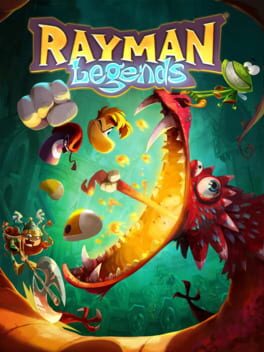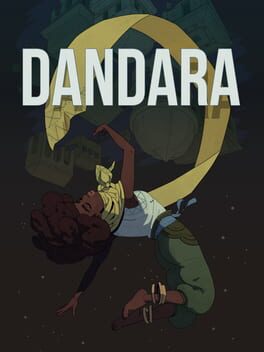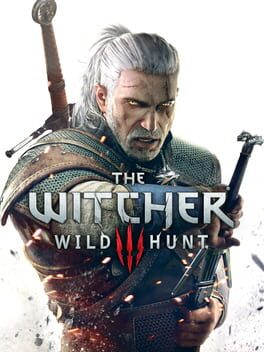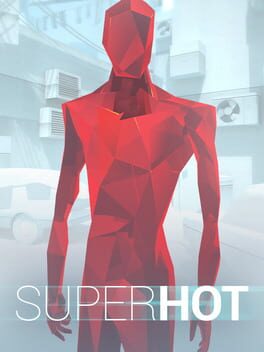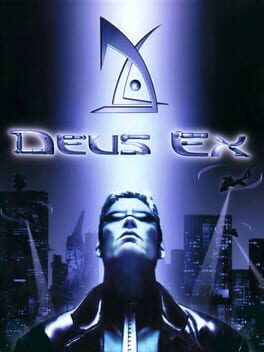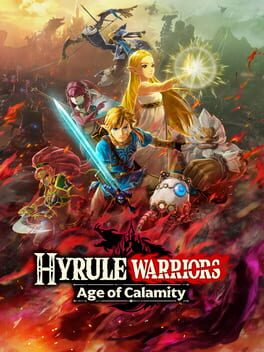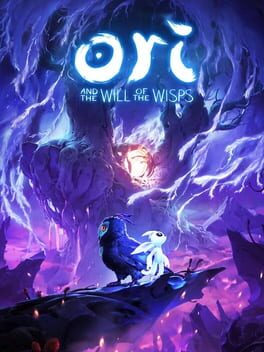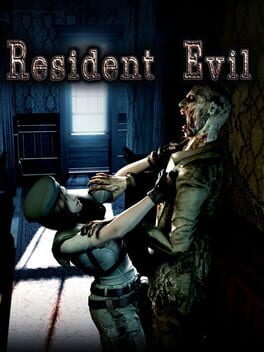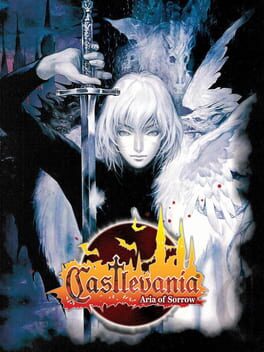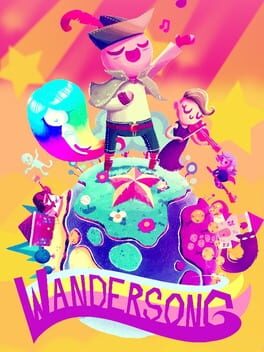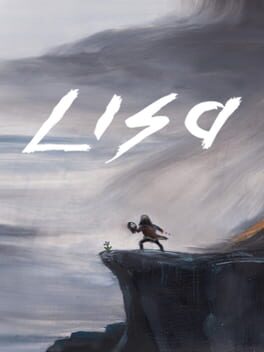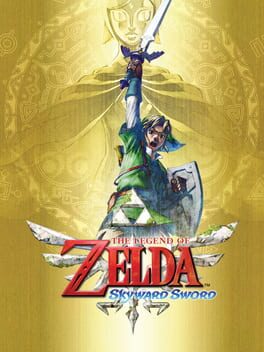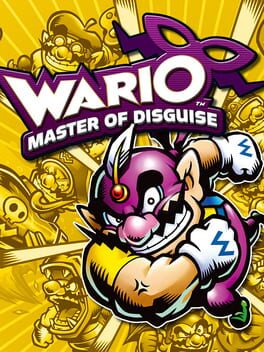chump
2013
2018
I can't express how refreshing it is to play a game that completely embraces weirdness for the sake of weirdness. Dandara's core mechanics are unorthodox so it's satisfying when it delivers on being an unorthodox non-linear platformer: deceptively simple gameplay that puts a strong emphasis on quick maneuvering and spur of the moment improvised decision-making leads to an arcade-y experience that's more Mega Man X than Super Metroid. Combine this with a story that's absolutely dead set on never giving you any straightforward answers whatsoever and you've got a stand-out example of a game that manages to fully differentiate itself from a genre that's becoming intimidatingly homogenized. However, that's also where Dandara's biggest shortcoming ends up being. For a game with this many out-of-the-box design choices, it's really disappointing when figuring out where to go next follows the standard procedure of simply looking at the map for exits you haven't gone through yet. The game also probably could've benefited from taking itself a little less seriously- even I got pretty fed up with it constantly sniffing its own farts.
The story's honestly pretty inconsistent- certain quests are hallmarks of great worldbuilding and genuinely tough moral dilemmas, while others are forgettable, thinly contextualized busy work. However, what they all have in common is a set of mechanics that end up causing a pretty huge disconnect between the player and the main character. Geralt has to pay attention to environmental storytelling to figure out what exactly he's dealing with during each mission while I don't- I just have to hold "L," tap "A" when I'm next to something that's glowing red, and then listen to what Geralt tells me. Geralt has to evaluate whether or not he's currently strong enough to take on a particular contract while I can just look at what level the game says I should be at before I do it. Geralt has to strategize about the best way to prepare for each monster encounter while I just have to follow the instructions that pop up on my screen. In short, I'm not actually the witcher, I'm just watching him work, and this is a flaw that the game's top-notch presentation doesn't make up for. It's a game that doesn't have much room for player input in general, with the exception of its dialogue choices, which, to be fair, it excels at. The harshest insult that I can throw at The Witcher 3 is that it's basically a Telltale game where your choices actually matter, and there's far, far worse things for a triple-A title this monstrously large to be.
2016
A phenomenal concept that never winds up going anywhere, and a story that isn't as deep, interesting, or original as it thinks it is. Probably would've bumped it up half a star if there was more to the replay system- being able to watch them from a third person or top down perspective would've gone a long way.
2000
Its unwavering commitment to letting players do things their way is what makes it great; its meticulous level design that really forces players to look at their surroundings as if they were really there is what makes it one of the most fulfilling RPGs ever. Deus Ex is a long string of kept promises, from the story premise of taking down the world government, bolstered by great writing, a dynamic soundtrack, and horrible but somehow tonally appropriate graphics and voice acting, to the genius use of permanency in the upgrade system that really puts the 'immersive' in 'immersive sim.' If there's a complaint to be made here besides some pretty sizeable balance issues, it's that it does get weaker the longer it goes on- the final few missions feel like they bleed together and certain third-act plot elements could've been handled much better- but it's worth it when you realize it's all been a wonderful set up for perhaps the only good end-game player decision ever. Grandiose, mature, and dare I say thought-provoking, long before the movie games of the modern age began to convince the world that these things couldn't be achieved without sacrificing player control.
There's some decent improvements to the gameplay of the original Hyrule Warriors in here- the shorter optional levels help break up the repetitiveness somewhat, and the character upgrades being merged with a kingdom management-type overworld is actually really well done. Overall it's nothing spectacular, but it's much more gratifying than I went in expecting it to be.
...That's all well and good but none of it actually matters. Nobody's playing this for the Dynasty Warriors gameplay, and the truth is that Tecmo totally botched a golden opportunity to flesh out the inarguably weak story of one of the most well-received games of the past decade. A borderline incoherent time-travel premise and barebones character interactions aren't inexcusable until they're coupled with the real kicker: the lack of any real worldbuilding. Age of Calamity's Hyrule feels absolutely identical to Breath of the Wild's Hyrule despite being separated by 100 years and the apocalypse, and because of this the game's existence doesn't feel justified. It doesn't add anything of value to the property it's playing off of, and it ends up being hard to recommend to even the biggest fans of Breath of the Wild.
...That's all well and good but none of it actually matters. Nobody's playing this for the Dynasty Warriors gameplay, and the truth is that Tecmo totally botched a golden opportunity to flesh out the inarguably weak story of one of the most well-received games of the past decade. A borderline incoherent time-travel premise and barebones character interactions aren't inexcusable until they're coupled with the real kicker: the lack of any real worldbuilding. Age of Calamity's Hyrule feels absolutely identical to Breath of the Wild's Hyrule despite being separated by 100 years and the apocalypse, and because of this the game's existence doesn't feel justified. It doesn't add anything of value to the property it's playing off of, and it ends up being hard to recommend to even the biggest fans of Breath of the Wild.
Items marked on the map, quests being logged for you in Bethesda-esque fashion, and the direction that you're "supposed to go" always being clear. Making a sequel much less exploration and discovery focused than its predecessor isn't necessarily a bad thing, but the game really needed some other element to fill in those gaps. At first it seems like it sets up action to be that solution, but the game's combat falls painfully short once you realize there's absolutely zero consequence for any mistake you might make, and on top of that the customizable equipment hardly adds any complexity and instead pretty much only increases your stats in varying ways. What's left at this point is a sequel that's inferior to the original, but admittedly different enough so that they're both worth playing.
It's not all bad though. The visuals, music, and movement mechanics are still excellent as expected, albeit less impactful the second time around. The locations are much more interesting than they were in the first game, and there are some great little moments that are more present here than in The Blind Forest. For me, it was speaking to Kwolok for the first time, seeing the sun peek through the mountains in the background when arriving in Baur's Reach, and of course, everything that had to do with the Wellspring Glades.
It's not all bad though. The visuals, music, and movement mechanics are still excellent as expected, albeit less impactful the second time around. The locations are much more interesting than they were in the first game, and there are some great little moments that are more present here than in The Blind Forest. For me, it was speaking to Kwolok for the first time, seeing the sun peek through the mountains in the background when arriving in Baur's Reach, and of course, everything that had to do with the Wellspring Glades.
2002
The rare and truly, truly special occasion where each and every element works perfectly in tandem to fully realize a game's potential. The gratifyingly punishing mechanics, the terrific sound design, art direction, and camera angles, the grounded yet still interesting puzzles, the ingenious map design leading to a healthy amount of very purposeful backtracking, the slow drip of story clues, and yes, even the control scheme all come together to create not only the pinnacle of survival horror, but perhaps the pinnacle of video games altogether. Every second spent playing Resident Evil (2002) is a second of decision-making, a second of rapidly building anticipation and curiosity, and a second of experiencing an unmatched atmosphere. It's a game that everyone who's at all interested in the medium needs to play, for real.
One of the best non-linear platformers out there simply because of how streamlined everything about it is. Zero tutorials, unceremonious upgrades, and a story and setting that the player is hardly told anything about all make the game much more atmospheric and memorable compared to chattier entries into the genre. But, the memorability in particular is largely stifled by some barely fleshed out RPG mechanics and overall uncomplex gameplay- I only ever found myself switching away from my default strategy two or three times.
2019
A classic example of a game not reaching its full potential. The concept is unbelievably great. It has a clear goal: climbing a mountain in order to get cell phone reception. It has an engaging way to accomplish said goal: having to balance unique, not-quite-3D platforming with collecting upgrades through various means like exploration and interacting with other hikers. What's most impressive is how self-contained it all is- never for a second does anything feel thematically out of place, nor does it feel like any aspect was only put in to make the game "work better" as a game. It feels like an artistic vision come to life with no compromise. However, what the concept hinges on in order to be successful is unfortunately what the game fails to accomplish. The balancing act that the player has to perform should mean that it's not possible to progress in either of the two fields- climbing the mountain and collecting upgrades- without progressing in both of them, but this just isn't the case. There's not really any struggle in climbing the mountain, meaning that I was able to beat the game while picking up only a few feathers before going back down to collect everything else. The lack of challenges to overcome, and because of that the lack of multitasking the player is forced to do, ultimately make the game An Unsatisfying Hike, and the cheesy, predictable ending and Night in the Woods-esque dialogue certainly don't help.
2018
The best way to describe Wandersong's gameplay is that it's like an RPG without battles. The obstacles that the player has to overcome mostly consist of figuring out how to progress, usually by talking to townspeople in order to trigger some sequence of events. Does this mean there's nothing to the gameplay? Pretty much. This isn't a dealbreaker, as there are some dialogue-focused games that I do enjoy, but Wandersong is not one of them. The reason for this is because the dialogue is not good. There's been a recent epidemic of certain indie games all having the same brand of terrible writing- every character speaks like a teenager on the Internet. You know exactly what I'm talking about- lowercase letters, being overly "wholesome," usage of quirky language like "heck." It's all lazy, and it's all in an effort to create artificial charm and likeability that isn't really there. It's bearable in something like A Short Hike because of the gameplay around it, but when there's nothing to distract from it, like in Wandersong, it just gets really, really grating. Couple it with a boring meta-focused plot that wasn't clever the first dozen times it was done and it's almost painful.
Let's focus on the positives now- after all, that's what the game's main character would want. Although the puzzles are extremely easy, the way they're all integrated in with the singing mechanic in different ways is pretty well done. Likewise, certain wacky turns of events, like suddenly being in a non-linear platformer, or being trapped in a Majora's Mask-esque scenario, or sailing through the world map with a band of pirates, are pretty appealing and give you a reason to keep playing in spite of the dialogue. All in all, it should've fully been a rhythm game with some puzzle elements instead of just having occasional rhythm segments that are oddly impossible to fail.
Let's focus on the positives now- after all, that's what the game's main character would want. Although the puzzles are extremely easy, the way they're all integrated in with the singing mechanic in different ways is pretty well done. Likewise, certain wacky turns of events, like suddenly being in a non-linear platformer, or being trapped in a Majora's Mask-esque scenario, or sailing through the world map with a band of pirates, are pretty appealing and give you a reason to keep playing in spite of the dialogue. All in all, it should've fully been a rhythm game with some puzzle elements instead of just having occasional rhythm segments that are oddly impossible to fail.
The extremely low level of difficulty prevents it from being a good puzzle game, but perhaps more importantly it contributes to the strange lack of tension and intensity that should be very present within the game's scenario, best illustrated by the final "challenge." Although in my opinion the story goes one plot twist too deep, it's still entertaining to watch it unfold, especially thanks to the game's clever subversion of Japanese character tropes. But the non-notable gameplay causes it to leave your brain soon after it's over, and I doubt I'll ever play through it again. There's also the massive missed opportunity of the game not keeping track of how long it took you to complete each puzzle- trying to beat your best time would probably upgrade redoing escapes from just tolerable to actually fun.
2014
The concept of human beings on the verge of extinction is something that has been done numerous times in every medium, but nothing really does it in the way that Lisa does. The game's setting isn't a place where everyone is constantly fighting for their own survival, but rather one where the boredom and cabin fever from the futility of living in a doomed world has driven everyone towards a unique brand of wackiness. Elements like the vast amount of possible party members, permanent consequences like losing an arm or having playable characters die for good, and the game's perfectly fitting soundtrack certainly do a great job of making Lisa's setting come to life and feel worth learning about. The game is held back by a couple of flaws, however, like subpar art, locations that are pretty forgettable, and avoiding consequences by reloading saves being too easy, but all-in-all it's really one of the best RPGs of the past decade. It's a game that I find really sticking with me more and more as time goes by, and in a time when everyone's trying to create their very own Earthbound, Brad's story is possibly the only one that feels as worth experiencing as the original.
The hyper-fixation on Skyward Sword's motion controls as a point of criticism has always struck me as really misplaced. They're certainly a negative, but Skyward Sword could've been a decent game without at all changing its control scheme. In reality the motion controls are just the bad icing on a dreadful, dreadful cake. The game's only three locations consist of the most boring ideas possible for levels in a video game: a forest, a volcano, and a desert, each of which you're forced to visit multiple times. In a game series that's arguably carried by how interesting its locations are, this is already unacceptable. Couple that with how bafflingly linear their designs are in a game series that's inarguably carried by its exploration and it's downright damning. There are a couple neat little concepts in there- the beetle you can pilot to survey areas and the time mechanics in Lanayru Desert come to mind- but they're just brief breaks from an experience that's bland at best and painful at worst. Skyward Sword's other positives include a cheesy but admittedly pretty appealing story and most of all its soundtrack. It really can't be overstated how impressive Skyward Sword's music is. It's a game that's part of a franchise that has multiple contenders for greatest soundtrack of all time, and yet it still somehow manages to stand out. Ballad of the Goddess alone justifies Skyward Sword's existence, but it also comes with the negative of creating a reason to play Skyward Sword.
